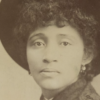That society is badly arranged which forces nearly all women to be servants.
Henri Barbusse (1873-1935) French novelist, poet, journalist, activist
Light, ch. 23 (1919)
(Source)
Quotations about:
social order
Note not all quotations have been tagged, so Search may find additional quotes on this topic.
Who, pray, are benefiting by all this waste and confusion? The dew, a mere small percentage of the population of the world. All the remainder submit, because they think “it always has been so and it must always be so.” The work of those who have a conception of a true society of the future, must devote all their efforts towards disabusing the people’s minds of the ancient false hoods. It can be done. Many other hoary lies have passed away, so will this one, too.
Lucy Parsons (1851-1942) American labor organizer, anarchist, orator [a.k.a. Lucy Gonzalez]
“Property Rights vs. Human Rights,” The Liberator (22 Nov 1905)
(Source)
For the old notions of civil liberty and social order did not benefit the masses of the people. Wealth increased, without relieving their wants. The progress of knowledge left them in abject ignorance. Religion flourished, but failed to reach them. Society, whose laws were made by the upper class alone, announced that the best thing for the poor is not to be born, and the next best, to die in childhood, and suffered them to live in misery and crime and pain. As surely as the long reign of the rich has been employed in promoting the accumulation of wealth, the advent of the poor to power will be followed by schemes for diffusing it. Seeing how little was done by the wisdom of former times for education and public health, for insurance, association, and savings, for the protection of labour against the law of self-interest, and how much has been accomplished in this generation, there is reason in the fixed belief that a great change was needed, and that democracy has not striven in vain.
John Dalberg, Lord Acton (1834-1902) British historian, politician, writer
“Review of Sir Erskine May’s Democracy in Europe,” The Quarterly Review (1878-01)
(Source)
Society is only incidentally and in certain cases regulative, and law is no equivalent to the social order. […] Even in our civilization the law is never more than a crude implement of society, and one it is often enough necessary to check in its arrogant career. It is never to be read off as if it were the equivalent of the social order.
Ruth Benedict (1887-1947) American anthropologist
Patterns of Culture, ch. 8 “The Individual and Culture” (1934)
(Source)




